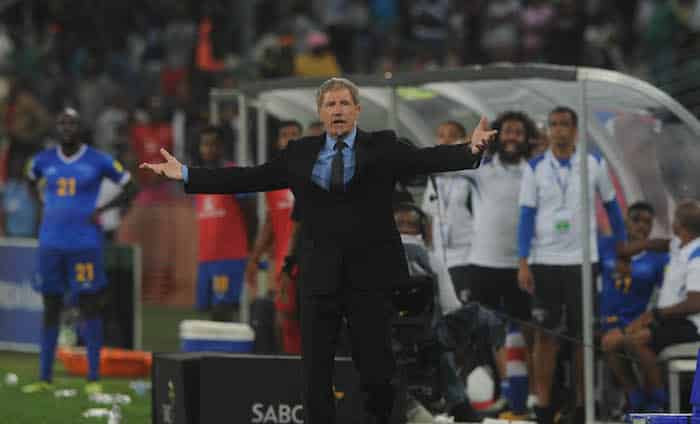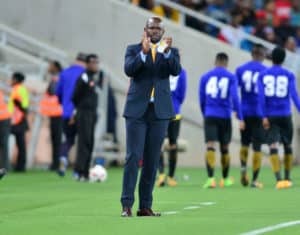Bafana Bafana are unlikely to be boarding the plane to Russia 2018, and Stuart Baxter’s team selection is largely to blame, writes MARSHALL GOUTS.
Before sharing my sentiments, I would like to state clearly that I am not joining the Bafana-bashing brigade, nor am I advocating for any personnel or players to be excluded or included.
With hindsight everything is always clearer, and from their couches everybody is an expert coach.
Following a dream start with a historic away victory against Nigeria in his second stint with the senior national team, Baxter went from hero to zero as Bafana succumbed to home and away defeats against Cape Verde within the space of four days.
Once again South Africa will have to rely on results from other fixtures to go their way, and a minor miracle to qualify for the World Cup, but what exactly went wrong in the 180 minutes played against the tiny island nation?
Baxter’s team selection was placed under scrutiny from the moment he released his 25-man squad as the calls rang out screaming favoritism when the former SuperSport United coach called up as many as five players from his former employers.
In the first leg his side struggled to play their usual game on the artificial pitch and surrendered their early lead, despite an early Tokelo Rantie strike.
Blaming the loss purely on the state of the pitch would be farcical, considering Bafana were given adequate time to prepare on the pitch. Maybe it was not a case of not preparing for the pitch, but rather not having prepared for the opposition?
Baxter partnered Bongani Zungu and Dean Furman for the central midfield pairing – a questionable option, considering the two are almost identical in ability; both thrive as box-to-box midfielders and offer a lot more in defence than they do on attack.
Kamohelo Mokotjo’s second-half inclusion was good, but not enough to see him start in Durban on Tuesday night as Baxter rang the changes, leaving the likes of Kermit Erasmus, a fit-again Thulani Serero and Andile Jali on the sidelines.
If Baxter had made the wrong decisions with his first lineup, he missed his golden opportunity to rectify his errors. Wholesale changes were made, but they did not come close to doing the trick, and left him looking rash and out of his depth at the highest level.
Despite the country’s best attacking midfielder Serero making a return from injury in time for Tuesday’s game at the Moses Mabhida Stadium, Baxter ignored him. As he did with Erasmus, Jali and Mokotjo. The moves backfired as the visitors ran into a two-goal lead, thanks to a sensational brace by Garry Rodrigues. That forced Baxter into a number of changes as he looked to resurrect his ailing side. Those substitutions appeared to work and simply left many wondering why Plan B or C were not the ones employed first.
There are also some valuable lessons to be learned from Cape Verde as a football nation. Despite a population of under one million people, they managed to acquire talent from all across the globe by casting their net far and wide. Bafana have recently lost out on the services of highly-rated Bayer Leverkusen defender Panagiotis Retsos, who opted to commit his allegiance to Greece instead.
Goal-scoring problems aside, South Africa should not have succumbed to back-to-back defeats against Cape Verde, and Baxter needs to shoulder much of the responsibility.
Pending a series of football miracles in the remaining fixtures, Bafana Bafana, Baxter and the rest of South Africa will have to settle for places on the couch next year when the world’s best compete in Russia.
Again, the question is should Baxter continue to be kept at the helm if South Africa once more fail to qualify for the biggest sporting event in the world?
Photo: Sydney Mahlangu/Backpagepix
Follow on Twitter @MarshallGouts





